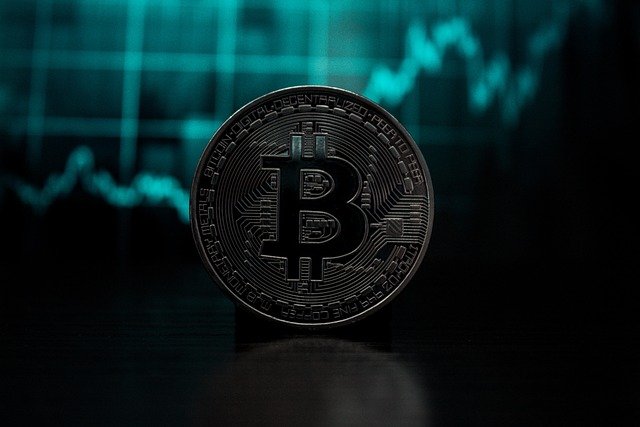The Silent Revolution of Real Estate Tokenization
Real estate, long considered a bastion of traditional investment, is undergoing a quiet yet profound transformation. At the forefront of this change is the concept of real estate tokenization, a process that's reshaping how we think about property ownership and investment. This innovative approach is not just altering the landscape of real estate; it's democratizing access to an asset class that has historically been the preserve of the wealthy and institutional investors.

The concept draws its power from blockchain technology, the same innovation that underpins cryptocurrencies. But while cryptocurrencies operate in a purely digital realm, tokenized real estate bridges the gap between the tangible world of bricks and mortar and the digital frontier of blockchain.
The Mechanics Behind the Innovation
At its core, real estate tokenization works by creating a digital representation of a physical asset. This process begins with a thorough valuation of the property. Once the value is established, it’s divided into a predetermined number of tokens, each representing a fraction of the property’s worth.
These tokens are then issued on a blockchain platform, typically using smart contracts. Smart contracts are self-executing contracts with the terms of the agreement directly written into code. They automatically enforce and execute the terms of the agreement, ensuring transparency and reducing the need for intermediaries.
Investors can purchase these tokens, effectively buying a stake in the property. The beauty of this system lies in its flexibility – investors can buy as little or as much as they want, depending on their budget and investment strategy.
Democratizing Real Estate Investment
One of the most significant impacts of real estate tokenization is its potential to democratize access to real estate investments. Traditionally, investing in prime real estate has required substantial capital, often putting it out of reach for many individual investors. Tokenization shatters this barrier.
By allowing fractional ownership, tokenization opens up opportunities for a broader range of investors. Someone who couldn’t afford to buy a $1 million property outright might be able to invest $1,000 in tokens representing a share of that property. This not only allows more people to participate in real estate investments but also enables investors to diversify their portfolios across multiple properties with relatively small amounts of capital.
Enhanced Liquidity in an Illiquid Market
Real estate has long been considered an illiquid asset class. Selling a property can be a time-consuming process, often taking months or even years. Tokenization has the potential to change this dramatically.
Tokenized real estate can be traded on secondary markets, much like stocks or bonds. This increased liquidity could revolutionize the real estate market, allowing investors to enter and exit positions with greater ease. It could also lead to more accurate and dynamic pricing of real estate assets, as the market would have real-time information on the value investors place on these tokens.
Global Access and 24/7 Markets
Another revolutionary aspect of real estate tokenization is its potential to create truly global property markets. Traditional real estate investments often come with geographical limitations – it can be challenging for an investor in one country to purchase property in another due to legal and logistical hurdles.
Tokenization could make these barriers obsolete. An investor in Tokyo could, in theory, buy tokens representing a fraction of a building in New York or a villa in the South of France, all from the comfort of their home. This global access could lead to increased capital flows into real estate markets worldwide and potentially more stable and efficient pricing.
Key Considerations for Tokenized Real Estate Investments
• Due Diligence: Thoroughly research the underlying property and the platform offering the tokens.
• Regulatory Compliance: Ensure the tokenization process complies with local and international regulations.
• Technology Risks: Understand the blockchain technology being used and potential cybersecurity risks.
• Liquidity: While tokenization can improve liquidity, it’s not guaranteed. Consider the size of the secondary market.
• Costs: Factor in transaction fees, management fees, and potential tax implications.
• Diversification: Use tokenization as a tool to diversify your real estate portfolio across different types of properties and geographical locations.
The Road Ahead: Challenges and Opportunities
While real estate tokenization holds immense promise, it’s not without challenges. Regulatory uncertainty remains a significant hurdle in many jurisdictions. Questions about how these tokens should be classified and regulated are still being debated by lawmakers and financial authorities worldwide.
There are also technical challenges to overcome. Ensuring the security of blockchain networks and smart contracts is paramount, as any vulnerabilities could lead to significant financial losses for investors.
Despite these challenges, the potential benefits of real estate tokenization are too significant to ignore. As the technology matures and regulatory frameworks evolve, we’re likely to see increasing adoption of this innovative approach to real estate investment.
The silent revolution of real estate tokenization is just beginning. It promises to reshape the landscape of property investment, making it more accessible, liquid, and global than ever before. For investors willing to navigate this new terrain, it offers exciting opportunities to participate in one of the world’s largest asset classes in ways that were previously unimaginable. As with any investment, due diligence and a clear understanding of the risks and rewards are essential. But for those who get it right, real estate tokenization could open doors to a new world of investment possibilities.






